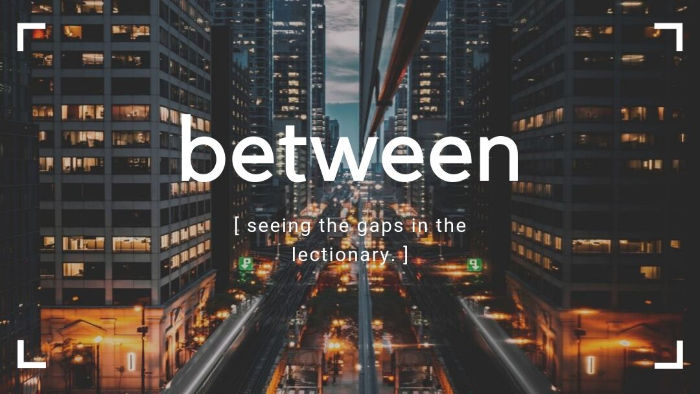
A look at the gaps in the lectionary.
This week: the gap between Lent 4 and 5
The text: all of John chapter 10.
As we explored last week, John’s gospel focuses a lot on the leaders who oppose him. Far more than the synoptics, which give more attention to the teachings of Jesus. Here, we get his teachings in dialogue with the leaders. Who, incidentally, have sought to kill him since chapter seven.
This between chapter has the famous Good Shepherd teaching. Outside of this context, this teaching is offered as instructive of how Jesus relates to us. But in this one, it is certainly set up as a contrast with precedent.
Every time this passage comes up in the lectionary, I feel the need to point out that Jesus keeps mixing his metaphors.
I don’t mean to be persnickety about it. I’m not trying to belittle him. Much the opposite.
I don’t want us to limit him by our own assumption that he is offering us something simple and straightforward.
He’s doing the opposite
He’s offering us something that is hard to put into one simple image. So he needs several to offer different contours.
- He talks about the fence and the gate.
- Then he says why he’s the gate.
- But then he says why he’s the shepherd helping the sheep get through the gate.
A Dialectic Approach
Jesus sets up a dialectic conversation with people. He talks about inside and outside. Who hears and who doesn’t. Who is the shepherd and who isn’t. How we get in and how we avoid it.
Much as he will say in future chapters to the disciples, he describes a desire for the insiders to be inside. And that some of today’s outsiders are really insiders.
This latter idea is often quoted as explaining why Christians who obsess about making sure everyone’s dunked for Team Jesus are missing a crucial point. Like, maybe Gandhi isn’t in hell, for instance.
Confrontation
The second half of the chapter is a confrontation with the leaders. Not surprising for anyone who has been following along. But even more exciting for those who are willing to see a more generous Jesus.
The leaders confront Jesus, claiming that he is a heretic. Which is pretty old hat by this point; their argument is quite recognizable. But the amazing part is how Jesus responds to the charge. It goes something like this:
- Jesus says something about what God wants.
- Pharisees: You can’t speak for God!
- Jesus: Why not, we’re buds!
- Pharisees: You’re claiming to be a God!
- Jesus: Doesn’t Scripture say we’re all little gods?
- Pharisees: Heretic!
Here’s the amazing thing. Jesus isn’t a slick systematic theologian. He just spent five minutes mixing his metaphors talking about being part of something but not really and we all are, but only some of us, but then it’s a lot more than we think…
Today, if I were take the incarnational theology that Jesus is describing here and say exactly what he said, guess what would happen? Christian leaders of every stripe would call me a heretic. Today.
What do we do with this?
The brilliance of all of this is that the whole chapter is a dialectic. Jesus is talking around big ideas and he is clearly espousing stuff we want to be doctrinal. And other stuff we want to ignore.
He might be saying this stuff for effect or for the sake of arguing. But then is that not also applicable to it all? Is his calling himself a good shepherd doctrinal and that we are all gods not? Why is the one a certain yes and the other simply rhetorical?
Because that is more convenient for some people’s systematic theology.
I think the opposite approach is more fruitful and engaging.
Taking Jesus seriously means taking it all seriously. And saying that God’s dream for creation is complicated is an understatement.
It actually does work, though.
The dialectic present in both halves of this chapter fit pretty well together.
Yes, God sent a good shepherd to help us get in. And people get in without being Christian.
Also, we are made in the image of God and are therefore little gods. And yet, we are fully human and God is the only god.
I suspect the problem is not that Jesus has too complex a theology. But that we have a too legalistic imagination.
